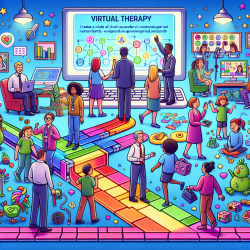Understanding Altruism and Scepticism in Clinical Trials
In the world of clinical trials, understanding the motivations behind participation can be as crucial as the trials themselves. A recent study titled "Altruism, Scepticism, and Collective Decision-Making in Foreign-Born U.S. Residents in a Tuberculosis Vaccine Trial" offers valuable insights into the complex interplay of factors that influence individuals' decisions to participate in clinical research.
Key Findings from the Study
The study focused on foreign-born U.S. residents participating in a Phase I tuberculosis vaccine trial. It revealed a spectrum of motivations, ranging from altruism and the desire to contribute to science, to scepticism and concerns about personal risk. These motivations were further influenced by cultural understandings of power, authority, and medical decision-making.
- Altruism: Many participants expressed a desire to help others and contribute to the greater good. This sense of altruism was often coupled with trust in the study staff and a belief in the trial's significance.
- Scepticism: Concerns about the trial's risks and the intentions of the researchers were prevalent. Participants were wary of financial incentives, viewing them as potentially coercive.
- Collective Decision-Making: Cultural norms and the influence of family and community played a significant role in the decision-making process. This highlights the importance of understanding cultural contexts in clinical research.
Implications for Practitioners
For practitioners, these findings underscore the importance of culturally sensitive communication and relationship-building in clinical research. Here are some strategies to consider:
- Build Trust: Establishing trust with participants is crucial. This can be achieved through transparent communication and by involving trusted community leaders in the recruitment process.
- Understand Cultural Contexts: Recognize the cultural factors that influence decision-making. Tailor your communication strategies to align with these cultural norms and values.
- Address Scepticism: Provide clear, factual information about the trial's risks and benefits. Address concerns about financial incentives and ensure that participation is voluntary and informed.
Encouraging Further Research
This study opens the door to further research on the motivations and barriers to clinical trial participation among diverse populations. Understanding these dynamics can lead to more effective recruitment strategies and improved outcomes for participants.
To read the original research paper, please follow this link: Altruism, Scepticism, and Collective Decision-Making in Foreign-Born U.S. Residents in a Tuberculosis Vaccine Trial.










